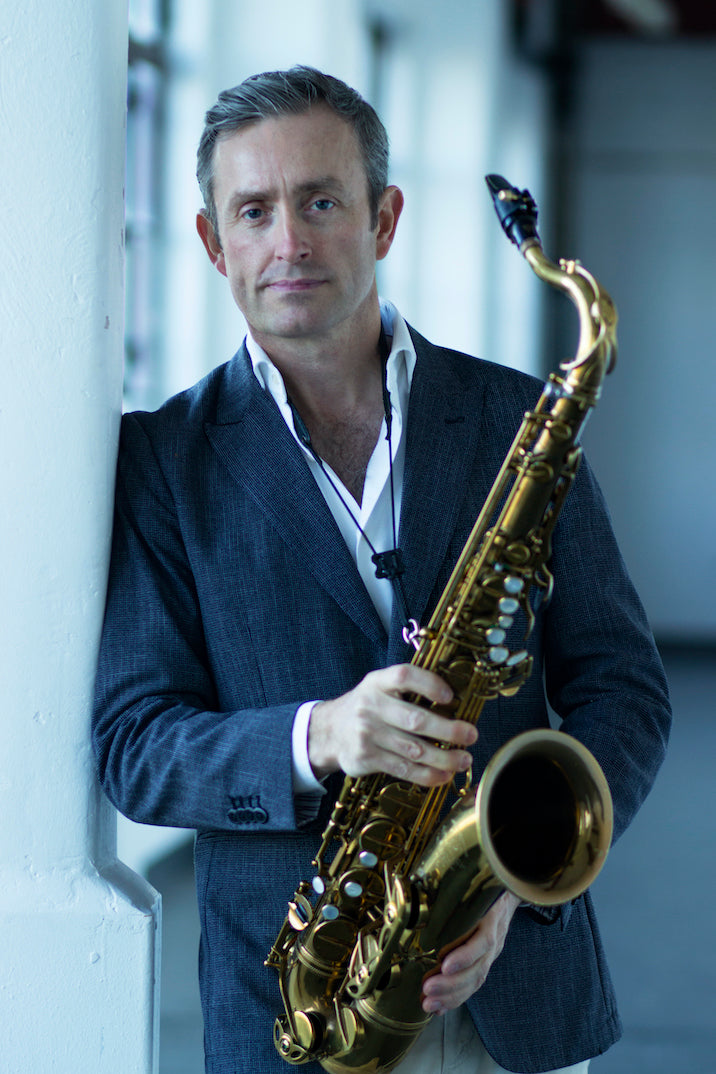No Products in the Cart

Tommy Smith plays RW Tenor Saxophone Reeds.
"Of the generation which emerged in the mid-80s, he might be the most outstandingly talented"
- Richard Cook on Tommy Smith, Richard Cook's Jazz Encyclopedia
Born in Wester Hailes, Edinburgh in 1967, Tommy Smith is a phenomenon. One of the finest jazz musicians of his generation, Smith’s prolific career began with his first album, Giant Strides, (1983), when he was only sixteen. This recording earned him a scholarship to Berklee College of Music in Boston. There he formed the group Forward Motion with bassist Terje Gewelt, drummer Ian Froman and pianist Laszlo Gardony; and together they recorded two albums, The Berklee Tapes, (1985), and Progressions, (1988). Next, thanks to a recommendation by legendary jazz-fusion pianist Chick Corea, Smith was invited to join Berklee Vice-President Gary Burton’s band alongside pianist Makoto Ozone and bass guitarist Steve Swallow. As part of this quintet, Smith would tour the world for the first time and play on the album Whiz Kids, (1987).
"The key addition is Tommy Smith, who, if memory serves, is only the second saxophonist Gary Burton has employed in his twenty-odd years as a leader. Smith`s angular, Coltrane-like sound and his bristling lines contrast nicely with the smooth symmetrical shapes that typify Burton and Ozone`s solo work. And, equally important, Smith seems to have his own story to tell.”
- Larry Kart on the Gary Burton Quintet, Chicago Tribune
In 1989, at the age of twenty-two, Smith signed to the world famous Blue Note Records. With John Scofield on guitar, Eddie Gómez on bass and Jack DeJohnette on drums, and Gary Burton overseeing proceedings, Smith recorded his first of four albums for the label, Step by Step, (1989). This was followed by Peeping Tom, (1990), Standards, (1991), and Paris, (1992). During this era Smith would also record and tour with Scottish pop sensations Hue and Cry, vibraphonist Joe Locke and percussionist Trilok Gurtu; and present Jazz Types, a six-part BBC series featuring performances by some of the most important jazz musicians of the day. In addition to these engagements, Smith also began to study classical composition, leading to his first saxophone concerto, Unirsi in Matrimonio, (1990), and a suite for saxophone and strings, Un Écossais À Paris, (1991).
“The movements work as mood pictures, full of atmosphere and outbursts of drama”.
- Michael Tumelty on Tommy Smith’s Unirsi In Matrimonio, Glasgow Herald
1993 saw Smith sign up with Scottish label Linn Records, for whom he would record seven highly acclaimed albums: Reminiscence, (1993), with Gewelt and Froman from his old Berklee band Forward Motion; Misty Morning and No Time, (1994), inspired by the poems of Norman McCaig; Azure, (1995); Beasts of Scotland, (1996), inspired by the poems of Glasgow's inaugural poet laureate and future Scots Makar, (national poet for Scotland), Edwin Morgan; The Sound Of Love - The Ballads of Duke Ellington and Billy Strayhorn , (1998); Gymnopédie - The Classical Side of Tommy Smith, (1998), featuring Smith's Sonatas No. 1: Hall of Mirrors and No. 2: Dreaming With Open Eyes;
and Bluesmith, (1999). Smith also produced The Music of the Night for Linn in 1998, featuring his uncle, singer Jeff Leyton, (who sang the lead role of Jean Valjean in Les Miserables in London for fourteen years), and the City of London Philharmonic.
“Smith's artful writing makes the ensemble sound like a petite Philharmonic."
- Neil Tesser on Tommy Smith’s Beasts of Scotland, Playboy Magazine
In 1995, during his time on Linn, Smith established the Scottish National Jazz Orchestra. Initially receiving no institutional support, Smith single-handedly ensured the development of the venture until proper funding was finally secured.
“Since its birth in 1995, the Scottish National Jazz Orchestra has steadily matured into a big band fit to grace any stage in the world, regularly featuring international jazz stars as guests.”
- John Fordham, The Guardian
Photography by Aldo Ferrarello. Bio written by Niall Fulton